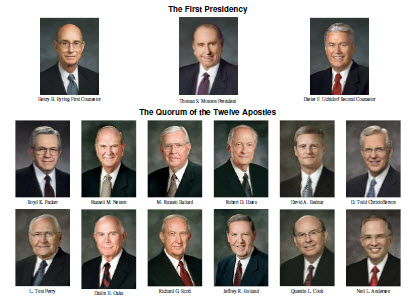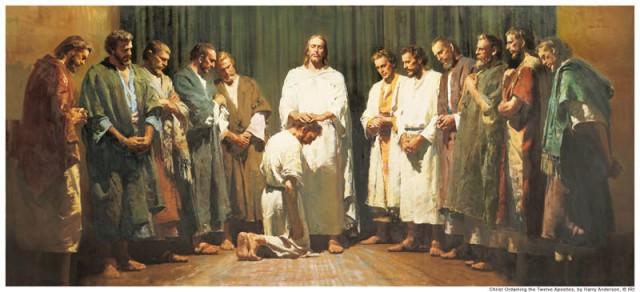Question
Gramps,
Did Jesus receive the Priesthood from His Father in the pre-existence, or has He always held it?
Lee
Answer
Lee,
The priesthood is described in Latter-day Saint theology as an everlasting principle that exists with God from eternity to eternity. According to the *Teachings of Presidents: Joseph Smith*, the priesthood is characterized by its timeless existence: “without beginning of days or end of years.” This foundational teaching emphasizes that the priesthood is not dependent on time or specific conferral but is an inherent aspect of God’s divine authority.
In the premortal existence, Jesus Christ was chosen and foreordained to fulfill the role of the Savior. He is referred to as the “Firstborn” of the Father, which indicates His unique status within the hierarchy of priesthood. The Melchizedek Priesthood, considered the highest order of priesthood, is said to be “after the order of the Son of God,” signifying that Jesus Christ embodies this priesthood inherently, rather than having received it at a specific moment in time.
Elder Bruce R. McConkie articulated this idea by stating that the priesthood was received first in the premortal existence and then again during His mortal life. This perspective reinforces the belief that Jesus, as Jehovah, possessed priesthood authority before His earthly ministry.
The teachings of The Church of Jesus Christ of Latter-day Saints affirm that priesthood authority was operative during the premortal existence. The *Doctrines of the Gospel Student Manual* emphasizes that all individuals existed as spirit children of God before coming to earth, with Jesus Christ holding a position of authority as the chosen Redeemer.
Joseph Smith taught that the priesthood was conferred upon Adam at creation, indicating that God has always established the structure of priesthood authority. This teaching suggests a continuity of divine authority from the premortal life through mortality and into eternity, highlighting the eternal nature of the priesthood.
As the Only Begotten Son, Jesus holds the priesthood without father or mother, which distinguishes Him from mortal beings who receive priesthood by conferral. This intrinsic authority is reinforced in the scriptures, such as in Hebrews 7:3, which states that Jesus is “without beginning of days or end of life,” emphasizing His eternal priesthood.
Joseph Fielding Smith noted that the heavenly organization in the premortal realm was perfectly arranged, suggesting that the priesthood was not only present but functionally operational among the heavenly beings. Each individual knew their place, and the priesthood was conferred upon those chosen to lead.
The doctrine emphasizes that the priesthood is the power of God through which He acts and reveals His will to humanity. It is conveyed through personal revelation and the ordained authority of God. Thus, the priesthood is not merely a title but an active force through which divine purposes are fulfilled.
This understanding is vital for Latter-day Saints as they recognize that the authority of the priesthood is essential to the functioning of God’s work on earth. The teachings of Joseph Smith indicate that the priesthood is held by prophets in every dispensation, starting with Adam, who received it during creation.
In conclusion, the teachings of The Church of Jesus Christ of Latter-day Saints affirm that Jehovah, as Jesus Christ, has always held the priesthood as an integral part of His divine identity and mission. He did not receive it in the same manner as mortals but embodied it as part of His eternal nature. The priesthood, as an everlasting principle, reflects God’s divine authority and continues to play a crucial role in the redemption of humanity.
As we ponder the eternal nature of the priesthood and Christ’s unique role as the Savior, we are reminded of the profound love of our Heavenly Father and the eternal plan He has for each of us. Understanding these principles not only strengthens our testimonies but also deepens our appreciation for the divine authority that governs our lives.
Gramps







